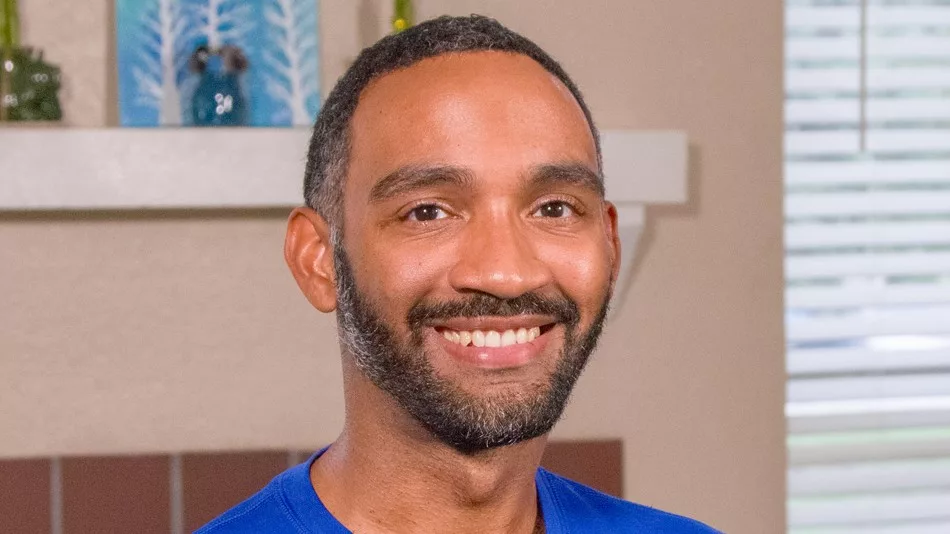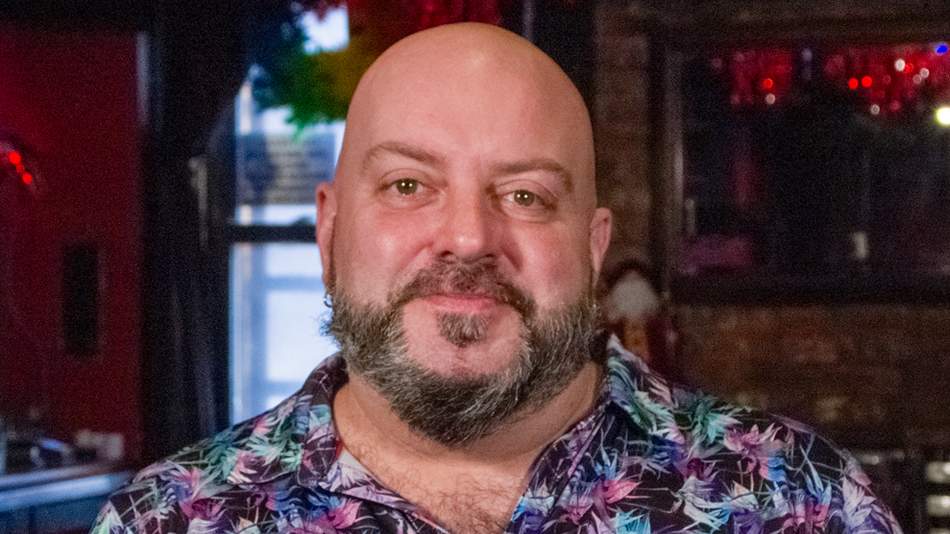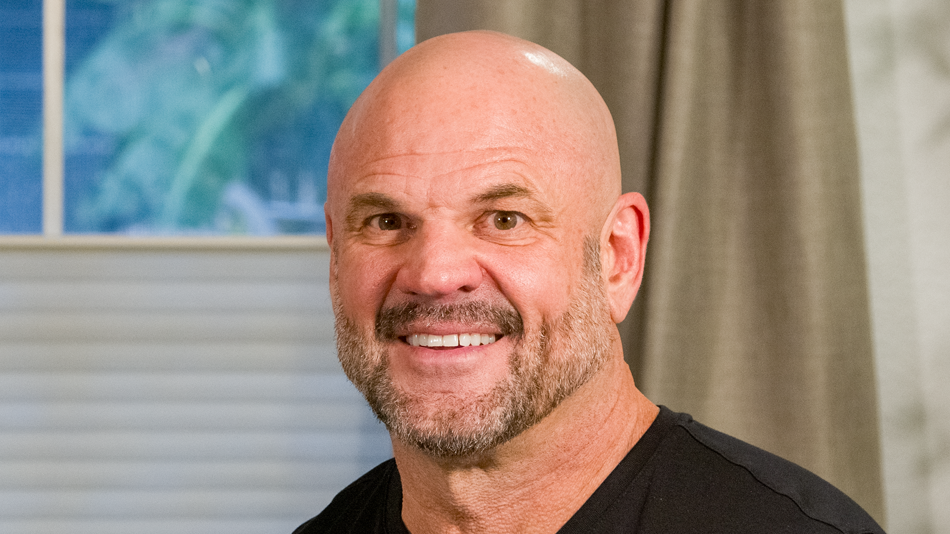I’m George Ashiotis and I grew up in Astoria Queens.
Around the age of five, I was playing ball in the park with my father and my sister. I remember there was a blue ball that we were playing with. And my father tossed it, and it fell directly in front of me and I couldn’t see it. And of course, my father was saying, “You can’t see it? It’s right in front of you.” And then, I turned my head slightly and it came into view and what I later understood was that that was the beginning of me losing my central vision.
The process of losing my vision was really very, very gradual. And I guess, as time went on, the central vision spread out more and more, to the point now, where I’ve got a little bit of light perception, but it’s hardly useful for helping me to get around in any way.
My sister was two years younger than I, and we were very close, and she was delegated – relegated – by my parents to be my protector.
I used to help her dye her hair. And one time, she was using black hair dye. Unbeknownst to me, I got some of that dye into my nails, under my nails. I didn’t realize it, but apparently it looked like I had nail polish on. And at the time, I was at the Lighthouse, in a teenage program, actually working with younger teenagers as an assistant to a sighted counselor. And one day I came in with my nails colored by the dye, and the counselor said to me, “What are you, gay?” And I had never heard the word before. But I knew what it meant,
I said, “No, I was just helping my sister dye her hair.” And he said, “Well, you better clean your hand because it looks like you’re gay.”
Anyway, just hearing that and having felt all my life attracted to men but not really putting a name on it or understanding what that meant, exactly, gave me such a sense of freedom and hope. I thought, “Oh my god, if there’s a name for it, then there must be other people that must be feeling the same thing that I’m experiencing, and I just need to find them.”
It really opened up a door for me and made me feel a lot more comfortable about myself.
I’d heard about Greenwich Village, and Christopher Street and there was a Gay Street, and I heard there was this thing called cruising. So I found my way downtown and hung around – with my my cane, mind you – stood on the corner of Christopher and Gay, and eventually someone came along. I guess he passed me by a few times. And finally he came up to me and asked, “Do you need any help or something?” And i said, “No.” And he said, “Do you want to go for a cup of coffee?” And I said, “Yeah.”
To me, attraction comes in two different ways. Primarily, I guess it’s from the voice. Someone’s voice and their personality, but also, in addition to that, it could be a touch. Like, sometimes people touch you when they’re talking. I’ve always kind of liked that because it’s sort of filled in for what I couldn’t see his eyes saying to me. So someone puts their hand on my arm as they’re speaking and just sort of holds it, that can be very nice. And it can be sexual or it could just be, “Oh wow what a really nice person who communicates with me, not only visually but also tactilely.”
We really have the same needs as everyone else. The need to hold and be held, love and be loved. And, you know, we have our good days and have our bad days. We may not accomplish a task in the same way that someone with eyes does, but we get the job done.
###
Resource Partner for the LGBTQ Visually Impaired and Blind: Blind LGBT Pride International. The purpose of Blind LGBT Pride International (“Blind Pride” or “BPI”), a 501c(3) organization, is to offer advocacy, education, programs, alliances,and support for persons who are either blind or vision impaired and who are gay, lesbian, bisexual or transgender.






Share